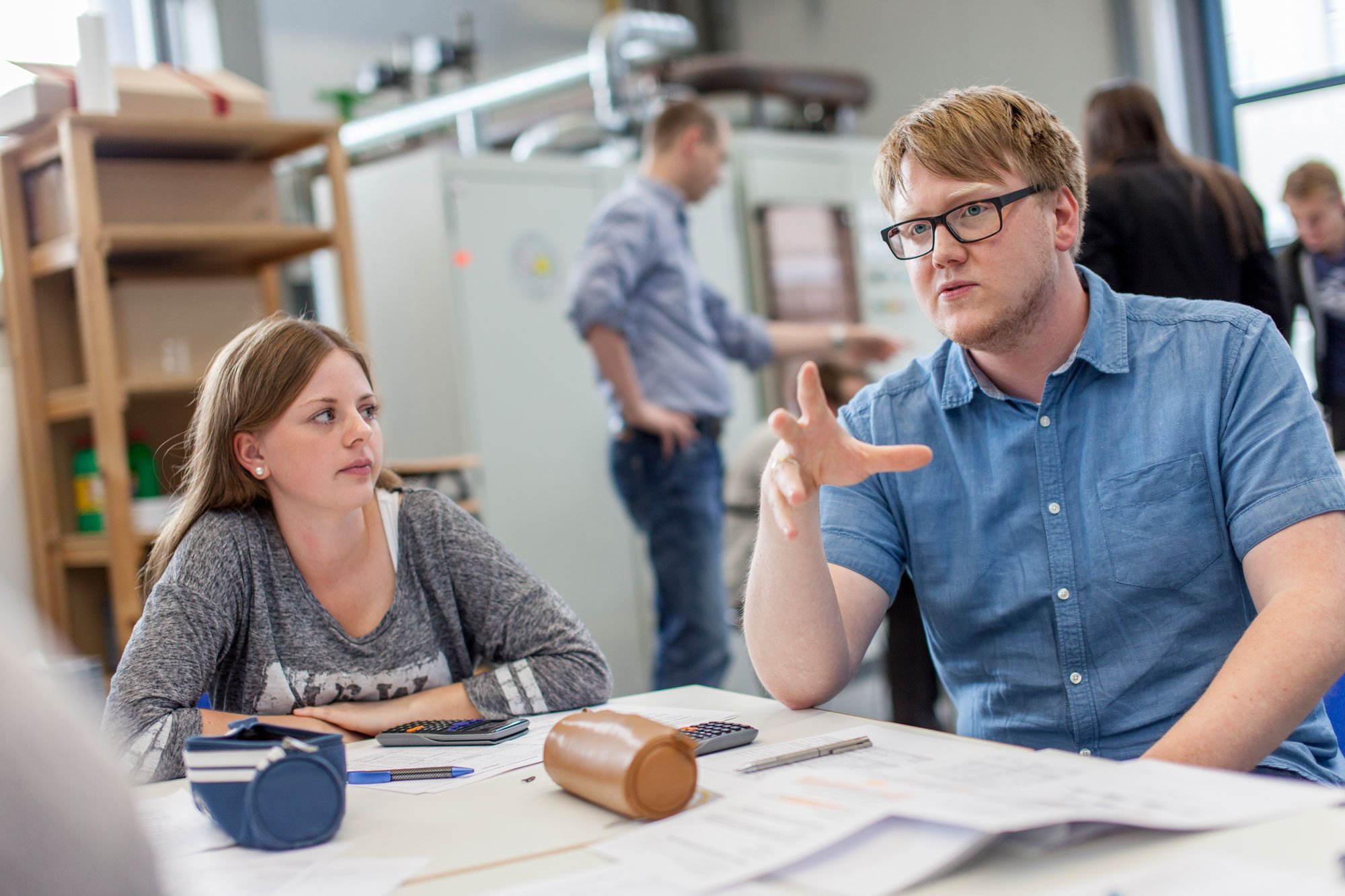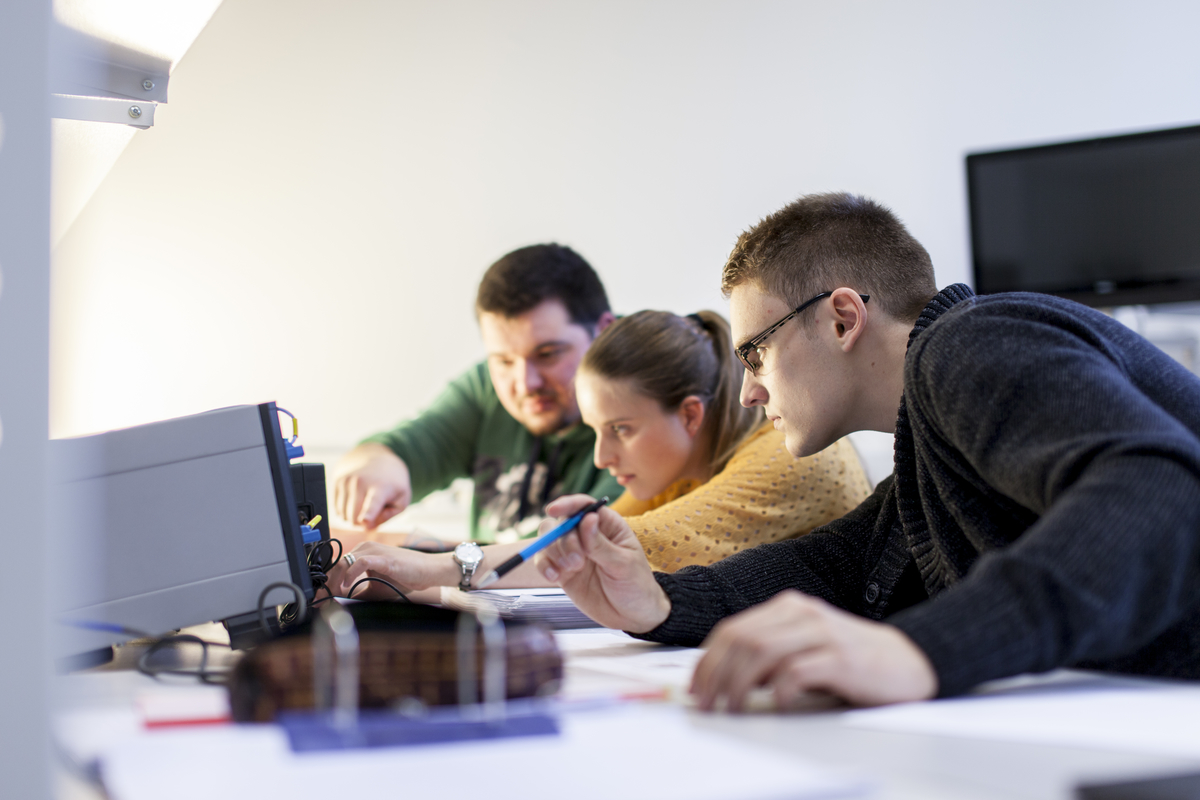
First of all: With regard to mathematical and scientific basics, very good grades in mathematics, physics or chemistry do not harm - but they are not a prerequisite for a successful start into engineering studies. Tailor-made preliminary courses, practice-oriented exercises and tutorials in the Energy - Buildings - Environment department help you to understand and learn the contents.
What is most fun about engineering?
Prerequisites for engineers
Engineers require
in their daily work routine
- technical understanding,
- a broad specialist knowledge,
- creativity
Some of it can be trained and learned. The other part has to be carried by a prospective engineer
Are the courses difficult?

What are the differences between engineers and industrial engineers?
What do work and career prospects look like?
Engineers and industrial engineers in energy technology, building technology and environmental technology do not tinker with individual products, but develop and optimise the systems in which technology interacts. They plan, develop, organise, monitor and support customers and prepare quotations. In this way they change the greater system and pave the way for a more sustainable future.
Why FH Münster?
The studies in energy, building and environmental technology offer you flexibility and plenty of opportunity for professional development. We won't leave you alone. We accompany and support you in your decisions so that you can fully develop your potential. The degree programme offers an ideal stepping stone into the engineering profession - you may hold this title with a Bachelor's degree from Münster University of Applied Sciences in accordance with the Engineering Act.


